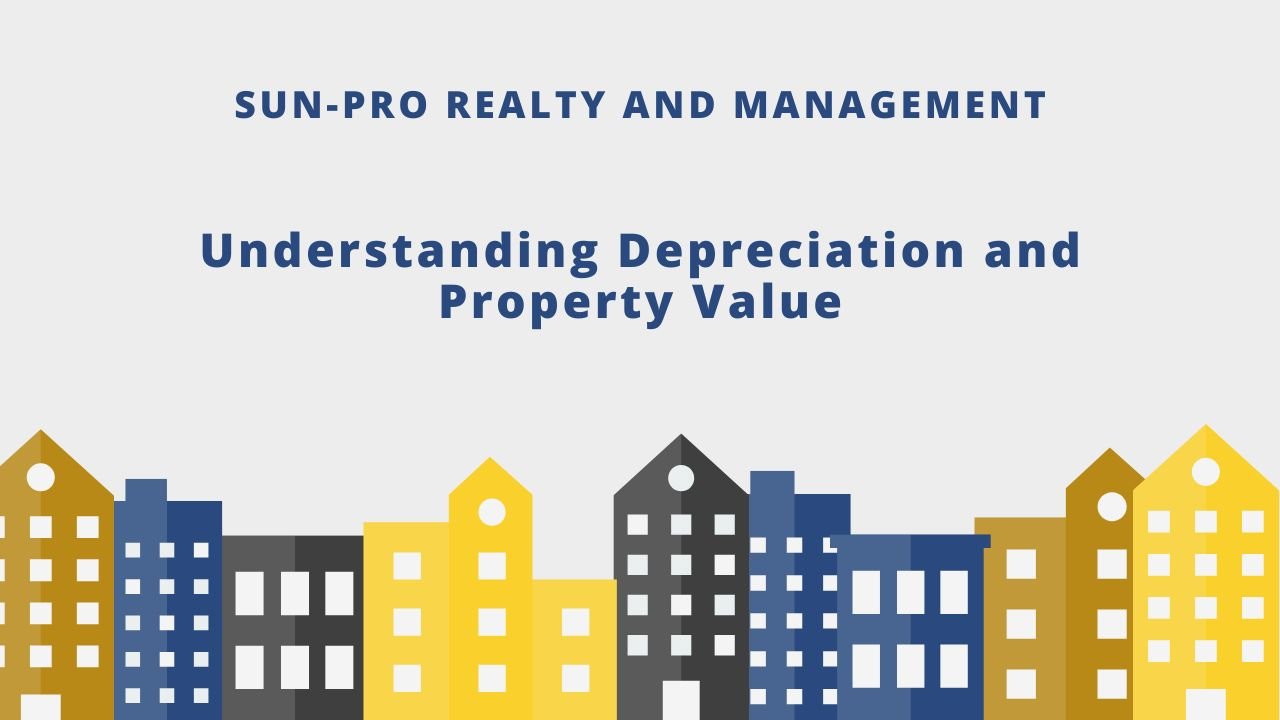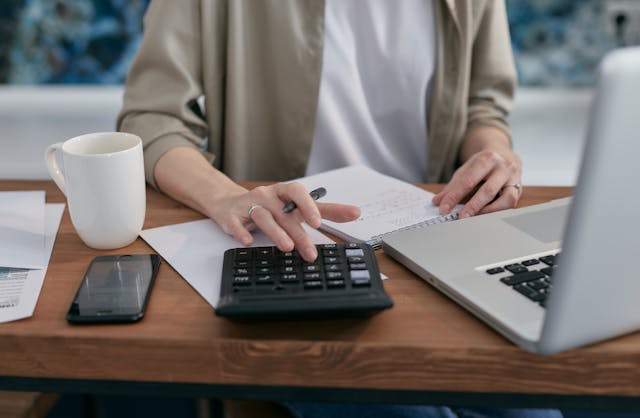
Depreciation plays a critical role in tax savings and can impact decisions related to property upgrades, pricing, and even selling. Landlords need to understand how depreciation affects their property’s financial performance and long-term value to ensure success in the rental business.
In this guide from Sun-Pro Realty and Management, we’ll break down what depreciation means for landlords and how to use it strategically.
Understanding Depreciation In Real Estate
Depreciation refers to the gradual loss of value in a physical asset over an amount of time due to wear and tear, aging, or obsolescence. For rental property owners, this means the IRS allows you to deduct a portion of the property’s cost over a set period, typically 27.5 years for residential real estate.
Importantly, depreciation applies only to the building and its improvements, not the land. While land maintains its value, buildings, appliances, roofing, and other components deteriorate with use, which is where depreciation comes into play.
For example, if you purchase a rental property for $300,000, and $60,000 of that is attributed to the land, the remaining $240,000 can be depreciated over 27.5 years. This means you can deduct around $8,727 per year as a depreciation expense, which reduces your taxable rental income.
How Depreciation Impacts Taxes
Depreciation provides one of the most valuable tax benefits for landlords.

By deducting a portion of the property’s value each year, you lower your reportable rental income, which can significantly reduce the amount of taxes you owe.
Suppose your rental property generates $20,000 in annual rental income. Without depreciation, you would pay taxes on the full amount, minus other eligible expenses.
However, with depreciation, you might be able to deduct $8,727, reducing your taxable income to just over $11,000. This can lead to substantial tax savings every year you own the property.
However, it is crucial to remember that depreciation is only a tax deduction and does not represent actual cash outflow. Some landlords mistakenly think depreciation affects their cash flow directly, but it mainly benefits them at tax time.
Recapture: The Flip Side of Depreciation
While depreciation offers tax savings during ownership, it comes with a future cost known as depreciation recapture. Upon selling a rental property, the IRS mandates that you repay the depreciation benefits you’ve claimed over time through a process called depreciation recapture.
This means the gain from the sale is split into two parts: capital gains and depreciation recapture. The depreciation recapture portion is taxed at a rate of up to 25%, which can surprise some landlords who were unaware of this rule.

For example, if you depreciated $87,270 over ten years and sold the property, you could owe taxes on that amount as part of the recapture process, even if the property value increased. Understanding this aspect is essential for landlords planning an exit strategy.
The Relationship Between Depreciation and Property Value
It is important to clarify that depreciation on paper does not necessarily reflect the property’s market value. While the IRS recognizes the property as losing value over time, the real estate market may tell a different story.
In many cases, well-maintained rental properties increase in market value over time due to factors like neighborhood development, rising demand, or general market trends.
This is why landlords can often sell a property for far more than its depreciated value on the books. However, deferred maintenance or lack of updates can hurt both the actual market value and future rental income.
Regular improvements, such as upgrading appliances, refreshing interiors, or maintaining the roof and systems, not only make the property more attractive to renters but also help protect and potentially enhance the property’s resale value.
How to Use Depreciation Strategically
Smart landlords don’t just let depreciation happen in the background—they actively use it as part of their investment strategy.
For example, capital improvements, such as adding a new roof or replacing major systems, can sometimes be depreciated separately over shorter timeframes, offering additional tax advantages.
.jpg)
Cost segregation studies are another tool some landlords use. These studies break down a property into different components, allowing certain items, like fixtures or equipment, to be depreciated more quickly than the standard 27.5 years.
While this approach can provide larger deductions upfront, it requires professional assessment and typically makes sense for larger properties or rental portfolios.
Why Maintenance and Upgrades Matter
While depreciation gives landlords tax benefits, neglecting property maintenance can erode real market value. Tenants are less likely to renew leases or pay premium rents in poorly maintained homes.
Additionally, when it comes time to sell, buyers will factor in the cost of deferred maintenance, potentially reducing the sales price.
Investing in regular repairs, cosmetic upgrades, and energy-efficient improvements can help offset physical depreciation and support stronger rental income and property appreciation.
Landlords should view maintenance not as a cost, but as a necessary investment to preserve the asset’s long-term value.
Partnering With a Professional Property Management Company
Managing depreciation, taxes, and property value can be complex—especially for landlords with multiple properties. A professional property management company simplifies this process by providing expert support beyond rent collection.
They handle maintenance, ensure legal compliance, and offer detailed financial reporting to help track depreciation and prepare for tax season.
With access to industry insights and trusted vendors, they help protect your property’s value and boost long-term returns. For landlords looking to grow their rental portfolio or take a more hands-off approach, this partnership is a smart investment.
Bottom Line
Depreciation is a powerful but often misunderstood part of owning a rental property. When used strategically, it can reduce taxes and improve the profitability of your investment.
However, it also comes with responsibilities, such as planning for depreciation recapture and ensuring the property remains in good physical condition to preserve its market value.
Landlords who take the time to understand how depreciation works are better equipped to work on the ups and downs of real estate ownership.
If you want to maximize the benefits of depreciation while protecting your property’s value, consider partnering with a trusted property management company like Sun-Pro Realty & Management.
Our expertise can help you make smarter decisions, avoid costly mistakes, and ensure your rental business thrives year after year.
